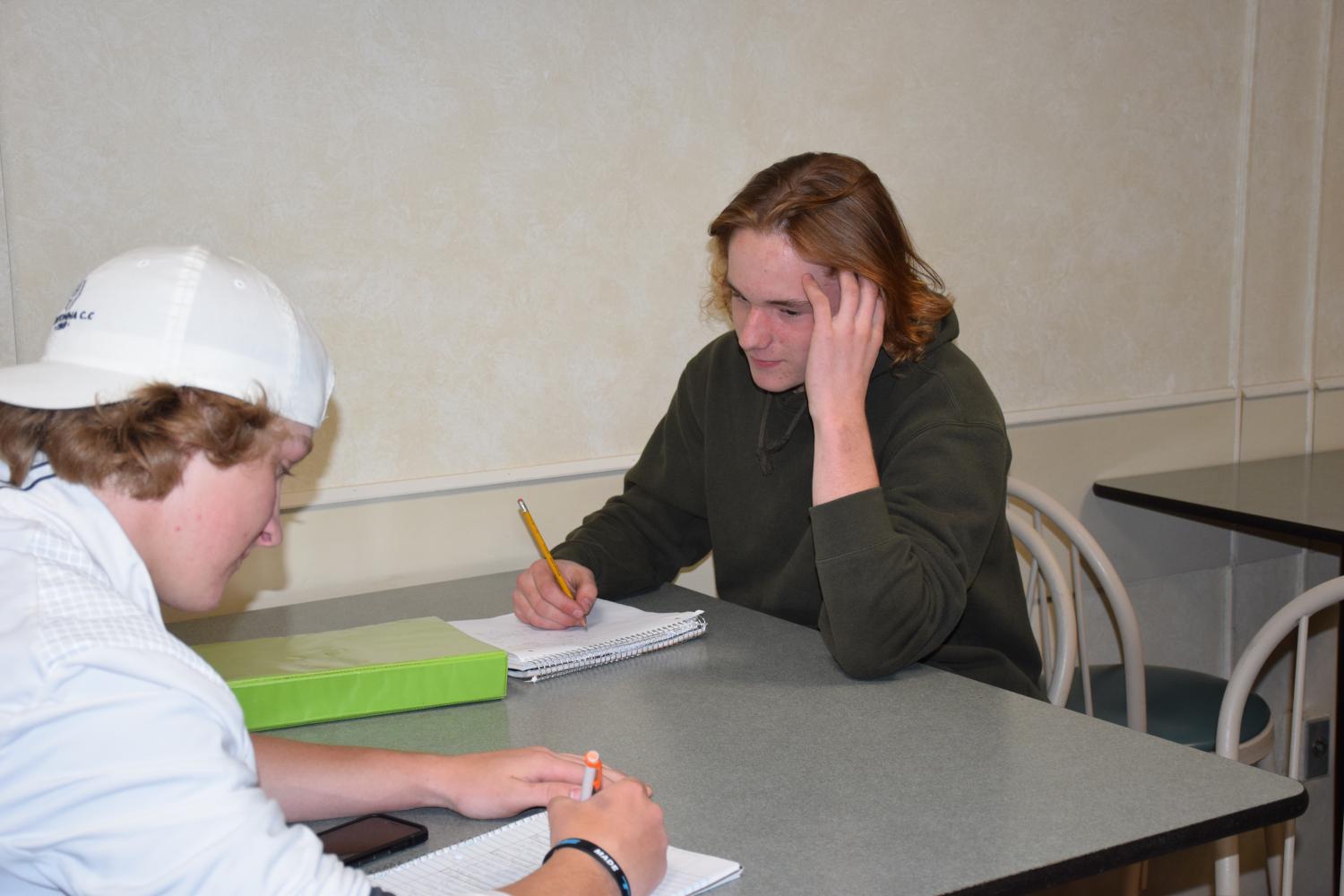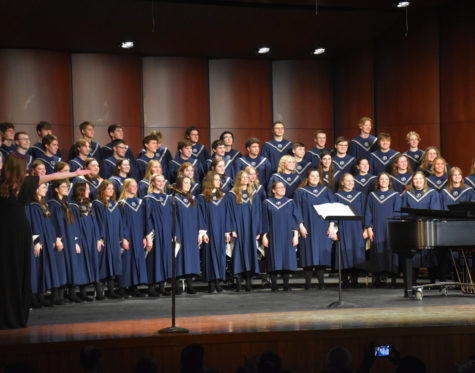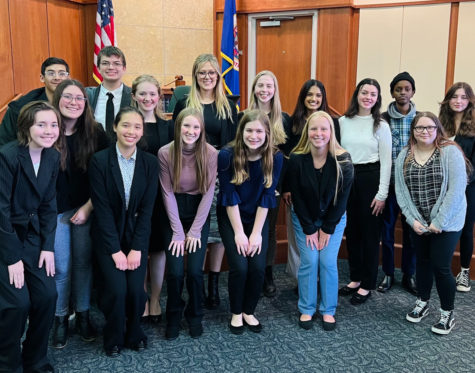Academic Integrity
In elementary school, it is common practice for teachers to make students put up folders around their tests to barricade everyone’s work while testing. The opaque folder’s purpose is to discourage any wandering eyes from the work of fellow classmates’. Despite the efforts of these well-meaning teachers, is the cheating tendency of these students stunted during these primary years?
What constitutes cheating?
An OHS student, speaking under the condition of anonymity shared their thoughts about cheating. According to the student interviewed, cheating is, “Using resources that are not allowed,” or in the case of plagiarism, “Using the work of someone else.” Sometimes students justify cheating based on the kind of work they are completing, such as homework or a test. The student interviewed said that they have cheated on both study guides and tests. According to the student, they estimated that the percentage of students who cheat at OHS to be, “About 75 percent of the student body.” The majority of students in the poll conducted by Magnet agreed, estimating the percentage of students who cheat to be around 75 percent as well. The student said that while they have never been caught cheating, they have still felt guilty after doing it. From a recent Magnet Poll that asked students questions on cheating, only 54 percent of students said that they felt guilty after cheating in class. Therefore, not only do many students cheat, but almost one out of every two students who do, do not feel bad or sorry after doing it.
Among the students in this sample, not only have they cheated, but they think the majority of students are cheating as well. This is in line with other research. According to a survey from Stanford University, more than 70 percent of people surveyed admitted they cheated during high school.
Usually I know the student’s writing style and voice, and if the writing is not congruent with that writing style and voice, that raises a red flag.
— Mr. Wanous
Also, from the Magnet poll – 92 percent of students said that they have cheated in high school. 71 percent of students said that they think cheating will never be eradicated. According to Assistant Principal Mr. Miller, “It’s no more a problem than the myriad of things that can occur at a high school. Is it widespread and prevalent? Research says, ‘Yes,’ I guess it all sort of depends what you define as cheating.”
As far as how often students cheat, The student interviewed said that they, “Probably cheat one time per class.” In the poll conducted by Magnet, 59 percent of students said that they have cheated two or more times per class.
Teachers’ perspectives
Plagiarism is an aspect of cheating that is brought up in every class that consists of research. English teacher Mr. Doug Wanous shared his thoughts on the cheating topic, specifically on plagiarism. He defined plagiarism as, “Using someone else’s words or ideas without giving that person credit.” In terms of detecting plagiarism, Mr. Wanous said, “Usually I know the student’s writing style and voice, and if the writing is not congruent with that writing style and voice, that raises a red flag. Sometimes [plagiarism] comes in the form of students using info that is not common knowledge and passing it off as if it is.” This is where a potential gray areas can come into. With some much information online that is readily available, it can be difficult for students to decipher what is common knowledge and what is not. When it comes to this gray area, Mr. Wanous said he asks the questions, “Is it an egregious intentional form of cheating, or was it an oversight?” Teachers mainly deal with cheating on a case by case basis. As far as consequences go, he said that, “[Cases of plagiarism] vary in degree of consequences. If the cases is a blatant breach of school policy and course expectations, then the situation will be handled differently than an oversight.” Many students at OHS are post-secondary school bound. For these students in college, Mr. Wanous noted that, “Research will be more specific and highly focused in one area, and that consequences will be a significantly higher punishment.” So as far as cheating in college goes, it is taken very seriously. Consequences in college from cheating can range from an instant failure in the class, as opposed to a 0 on the assignment, or even expulsion.
Math teacher Mr. Doug Maine wrote his Master’s in Education thesis paper on the subject of academic integrity. Mr. Maine’s definition of cheating, directly from his paper is, “Handing in school work or a test that was copied from – or done by – another person and taking credit for it as your own.” His estimation of the percentage of OHS Students who cheat in a given class is, “More than 50 percent.” Mr. Maine believes that cheating has nothing to do with being an academically weak or strong person; he said, “Cheating is all spread out among types of students.” He mentioned that he has caught someone cheating at least every year. Punishment for such transgressions varied due to circumstances; Mr. Maine said, “Sometimes I give the kid a zero, other times they will have to redo things.” While Mr. Maine has not noticed a spike among cheating any particular year, he did say that with the rise of cell phone usage, from his perspective, cheating has increased greatly.
Sometimes I give the kid a zero, other times they will have to redo things.
— Mr. Maine
Students should not cheat because they are not learning the material necessary. When relying on cheating, study habits are not properly attained. Once the transition to college begins, the learning curve of having to study instead of just cheating will be great. Therefore, students should try their best without cheating in order to set themselves up for future educational success.
Cheating is an ugly part of the educational system that can be found in varying degrees at any school. Is it a problem at OHS? The question many students and staff ask more frequently is where can the answer to this epidemic be found? The answers lies within each student. Excuses and justifications for cheating can be made, but the root of the matter is found in students’ academic integrity. This integrity consists of the morals that each student lives by and it is the responsibility of the student to stand for honesty and have dignity.






